Class III
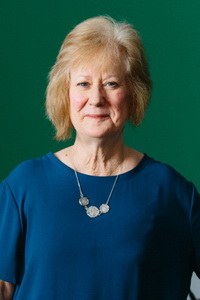
Harriet Able
Professor, Education
Dr. Harriet Able is an associate professor of Early Childhood and Special Education in the School of Education where she teaches courses focused on families of at-risk children and youth, special education and interdisciplinary teaming. Able’s research and Faculty Engaged Scholars project centered on family empowerment and at-risk youth in two school communities. The first project was a service-learning initiative with three Title I elementary schools in the Chapel Hill-Carrboro City Schools in which students spent 30 hours providing support to immigrant families and their children. In addition, Able and her students provided tutoring and after school support to these children as well as family education sessions to empower families to be advocates for their children.
Her second project focused on an initiative in Orange County Schools where she engaged in focus groups with interdisciplinary educators and parents of youth with high-functioning autism who are placed in fully inclusive educational classrooms, but who have social skill needs. These focus group interviews have led to a family and youth centered intervention. The intervention focuses on meeting the social support and skill needs of adolescents in middle and high school settings with the aim of reducing bullying of these youth.
“The Faculty Engaged Scholars program helped me develop a greater appreciation for interdisciplinary and community collaboration. I have realized that multiple stakeholders with varying levels of expertise can truly enhance a research and community development effort leading toward meaningful change for children, youth and families in 21st century schools.”
For current information on Harriet Able, visit her faculty page.
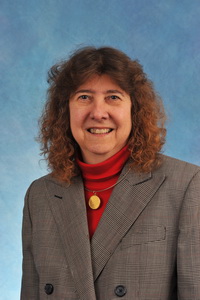
Elizabeth Crais
Professor, Allied Health Sciences, Speech and Hearing Sciences
Elizabeth Crais’ research focuses on addressing the gap between parental concern and action on the part of professionals to identify, diagnose and intervene with children with Autism Spectrum Disorders (ASD). She works closely with a team of interdisciplinary researchers including Drs. Grace Baranek, Linda Watson, Steve Reznick, and Lauren Turner-Brown. Crais’ research through the Faculty Engaged Scholars program focused on working closely with primary care providers to identify children with or at-risk for ASD. Along with former doctoral students, Cara McComish and Betsy Humpreys, Crais conducted eight focus groups and a survey documenting perceptions of parents and primary care providers (as well as practices) in North Carolina related to ASD identification. In addition, the team provided continuing education opportunities to a number of primary care providers regarding ASD early identification. Results of these efforts should guide primary care providers as well as other professionals in policy making surrounding early identification. The team is currently developing other efforts to extend this work to a larger pool of North Carolina providers and parents.
“My experience with the Faculty Engaged Scholars program has been transformative in helping me recognize the need to not just work with, but to actually form an alliance with community partners. In my future work, I will continue to seek opportunities to join forces with community stakeholders to enhance the lives of children with Autism Spectrum Disorders and their families. If not for FES, I would have continued to conduct my research in a unidirectional rather than bidirectional way.”
For current information on Elizabeth Crais, visit her faculty page.
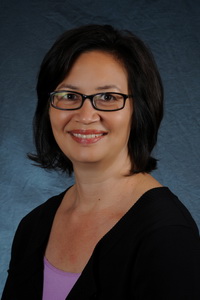
Patricia Garrett-Peters
Former Research Scientist, Center for Developmental Science
As a scientist at the Frank Porter Graham Child Development Institute (FPG), Dr. Patricia Garrett-Peters is committed to conducting research that makes a difference in the lives of children and families and informs public policy. Garrett-Peters’ current research focuses on how family and child functioning are affected by poverty, with attention to the role of household chaos, which often pervades the lives of poor families. For 10 years, Garrett-Peters has served as the North Carolina project director for the Family Life Project (FLP), a multi-site, longitudinal study of 1,292 poor rural children and their families. Garrett-Peters has also received funding to examine the ways in which teacher instruction and child skills interact to affect student engagement and academic outcomes in the FLP children.
Through the Faculty Engaged Scholars program, Garrett-Peters expanded her work to Karen refugee children from Burma attending Chapel Hill-Carrboro City Schools. She worked closely with elementary teachers to understand the barriers these students face, as well as the challenges teachers experience as they try to meet the educational needs of these children. As a result, she developed an intervention model that supports refugee students’ integration in the classroom and professional development for teachers who serve these students. She has applied for funding to develop this intervention and make it available to school systems across the country.
“Participating in the Faculty Engaged Scholars program has heightened my awareness of critical issues that are occurring right in my own backyard. Working with teachers of refugee students to identify and address their needs, as well as those of their students, allowed me to be more meaningfully connected to my research (and with the local community) in ways I never before experienced. Through this process, we were able to work together to imagine and create real solutions to real problems.”
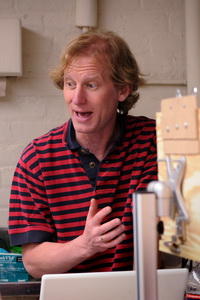
Richard Goldberg
Teaching Associate Professor, Biomedical Engineering
Richard Goldberg is a faculty member in Biomedical Engineering and the director of Undergraduate Studies in the Curriculum in Applied Sciences and Engineering. He teaches a senior design class in which undergraduate students develop custom assistive technology devices for people with disabilities. Project ideas come from therapists and clinicians in Durham and Chapel Hill, who serve as project advisers throughout the semester. Students spend the entire semester working on the design and development of a device. At the end of the semester, they deliver their device to the therapist and client at no charge.
As a Faculty Engaged Scholar, Goldberg sought ways to expand the impact of this program. To address additional needs in the community, he developed a technology repair shop, in which undergraduate students repair broken assistive technology products as a student extracurricular activity. In addition, some of the completed student projects, which have been delivered to a single individual or clinic, could benefit a broader audience. As a result, Goldberg has worked with several engineering firms to obtain funding through Small Business Innovation Research (SBIR) grants. The goal of these grants is to develop commercial products from the student design projects for individuals with disabilities. Each of these new programs will help to address real needs for assistive technology in the community.
“The Faculty Engaged Scholars program connected me with a network of people, both on campus and off campus, who are involved in engaged scholarship. These contacts have been valuable in helping me to move forward in my own work, which involves developing custom assistive technology for people with disabilities in the community.”
For current information on Richard Goldberg, visit his faculty page.

Ashley Lucas
Former Assistant Professor, Dramatic Art
Current Associate Professor of Theatre & Drama at the University of Michigan
Ashley Lucas is an assistant professor of Dramatic Art and a fellow of the Ford Foundation and UNC’s Institute for Arts and Humanities. Her research and teaching interests include U.S. Latina/o theatre, prison-related theatre, theatre for social change, and related topics in acting, playwriting and comparative ethnic studies. Lucas also authored a play about families of prisoners “Doin’ Time: Through the Visiting Glass,” which she has performed as a one-woman show throughout the U.S. and in Ireland and Canada. Lucas’s book manuscript “We All Looking at Walls: Ethnographic Theatre in Prison Contexts” is under review at the University of Michigan Press. Lucas co-edited “Razor Wire Women: Prisoners, Activists, Scholars, and Artists” and writes a blog by the same title. She is also the producing artistic director of the Teatro Latina/o Series at UNC.
The Faculty Engaged Scholars program helped Lucas deepen and extend her work with prisoners and their families through performance, community engagement and scholarship. She toured her one-woman play to prisons in Wyoming, Illinois and Ontario, Canada; to universities in Kentucky, Illinois and North Carolina; and to the national conferences of the American Studies Association and the National Women’s Studies Association, where she was a keynote performer. Building on the foundations of FES’s principles of community partnership, Lucas attended the 2011 Prisoners’ Family Conference and helped to draft a Bill of Rights for the Prison Family. The FES program also pushed Lucas to integrate her community work into her scholarship. Lucas will be the lead author on the “Methuen Critical Companion to Prison Theatre” and is planning a research trip to the United Kingdom to observe and work with companies devising theater in British prisons.
“The Faculty Engaged Scholars program provided me with high-quality mentorship, financial resources, and an incredibly supportive network of colleagues. In my two fellowship years, my work expanded and deepened, and I learned how to explain the value of my engaged research to funders and colleagues across the campus and beyond.”
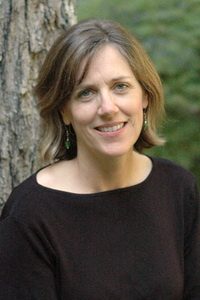
Laurie Maffley-Kipp
Former Professor, Religious Studies
Current Archie Alexander Distinguished Professor at the John C. Danforth Center on Religion & Politics at Washington University at St. Louis
Laurie Maffly-Kipp’s research and teaching focuses on American religious history and culture. She is committed to teaching both students and the broader public about how the field of religious studies provides important tools for dealing with religious conflicts that have always been a part of society. Her work is embedded in the tensions of a government valuing religious freedoms and rejecting a religious establishment that necessitates vigilance, discussion and education around issues of cultural and religious difference. As chair of the department of Religious Studies, Maffly-Kipp has sought ways to educate various communities about religious diversity and, specifically, to encourage people to learn how to openly discuss religious differences without falling into debates over absolute truth. Her research on African-American religions, Mormonism, and race and religion in U.S. history has resulted in numerous books and articles for both scholarly and broader audiences.
As a Faculty Engaged Scholar, Maffly-Kipp has focused on reaching out to a variety of national and international audiences. She has led seminars for high school teachers around the nation on religion in U.S. history, in order to help facilitate their discussions of religious belief and practice in the classroom. During the latest presidential election, she has written articles for The New York Times and the Congressional Quarterly on Mormonism, and has served as a consultant for journalists seeking information on the Mormon faith. She also has given talks internationally and online to audiences seeking better understanding of the nature of religious faith in American political life.
“My participation in the Faculty Engaged Scholars program, and particularly conversations with other scholars interested in reaching beyond the walls of the university, not only gave me new ways to think about my research and its significance, but also inspired me to consider all of my work in terms of broader outcomes. I was encouraged—indeed pushed—to think more creatively and imaginatively.”
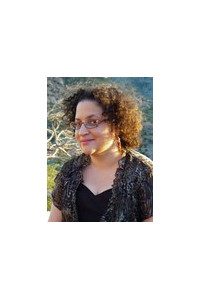
Malinda Maynor Lowery
Former Professor, History
As a member of the Lumbee Tribe of North Carolina, Malinda Maynor Lowery has been engaged in a variety of scholarly and community projects in the Lumbee community for the past 15 years. Those projects began with two short films, “Real Indian” and “Sounds of Faith,” which concern Lumbee identity, race and religion. The purpose of these films was to explain the intricacies of Lumbee identity to outsiders and to combat stereotypes about their culture and Native Americans in general. These films and much of her work since have been based on the premise that research and representation should be accountable to the community being represented. Over the years, Lowery has initiated various projects in the Lumbee community that have combined an understanding of culture and history with contemporary concerns around health care and economic development. Recently, she published a book, “Lumbee Indians in the Jim Crow South: Race, Identity, and the Making of a Nation,” which discusses the ways Lumbees affirmed their identity and sought federal recognition during the Jim Crow era. Lowery continues to work closely with the Lumbee Tribe as they move forward in federal recognition status. Her recent engaged scholarship work includes being a film editor, instructor and media consultant for Native Tribal Scholars Youth Program in partnership between the University of Massachusetts-Boston, Regis College and the Boston Harbor Islands National Park.
With the Faculty Engaged Scholars (FES) program, Lowery’s interest grew from sharing to exploring mutually important questions. The program supported her exploration into the Lumbee Indian community of Robeson County, N.C., where she was born and is a tribal member. For many years she has been engaged in the artistic expression, oral history and family photographs in the Lumbee community. She has heard people connect history to their present day concerns, and through the FES fellowship she has focused on researching ways to further this dialogue through social media and the digital humanities.
“The Faculty Engaged Scholars program gave me a supportive, nurturing community of colleagues at UNC who either understood this work well, or are at the beginning of their journeys like I am. I learned so much from those folks and from the program itself that I hope to carry into my future work.”
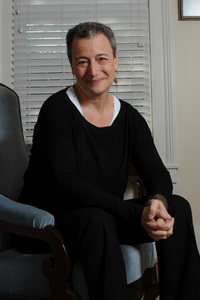
Della Pollock
Professor, Communication Studies
Della Pollock is a professor in the Department of Communication. She previously served as the interim director of the Southern Oral History Program in the Center for the Study of the American South at UNC and was the executive director of the Marian Cheek Jackson Center for Saving and Making History, which was the focus of her project for the Faculty Engaged Scholars program.
Located at the gateway to Chapel Hill’s formerly segregated Northside, the Jackson Center is dedicated to preserving, honoring and advancing the leadership exemplified in the oral histories of Northside community members. During Pollock’s time in the Faculty Engaged Scholars program, Jackson Center staff and student affiliates added more than 30 interviews to the Center’s digital collection, taking it to approximately 120. In addition, Pollock worked with the Sustaining OurSelves Coalition (SOS) to advance a historic moratorium on development in Northside, to shape the town’s new Northside Planning Framework and neighborhood ordinances, and to build a partnership between the University and the Self-Help Center for Community Development for design of community-driven strategies for neighborhood renewal. Pollock also helped the Jackson Center develop an award-winning youth radio program, FYR, which provided the model and leadership for WUNC’s summer youth radio institute in 2012. Through their collaborative efforts, the Jackson Center also organized and provided support staff for Heavenly Groceries, the only daily, grocery-style, perishable food distribution center in the region, now serving over 5,000 people from four counties per month. Pollock also assisted the Jackson Center in developing a popular community newspaper, hand-delivered to 800 residents and local businesses; and sponsored numerous occasions for community reflection and celebration, including the spring May Day Festival and the Civil Rights in Chapel Hill weekend.
“The Faculty Engaged Scholars program was like being hauled on board a freighter when I was at best treading in deep waters! I have come out of the program with resources, insights, a network of courageous and ingenious colleagues and, perhaps most important, a new way to identify my work and so to build its many aspects into a distinct profile. I’m on much firmer ground now, and in remarkably good company.”
For current information on Della Pollock, visit her faculty page.
